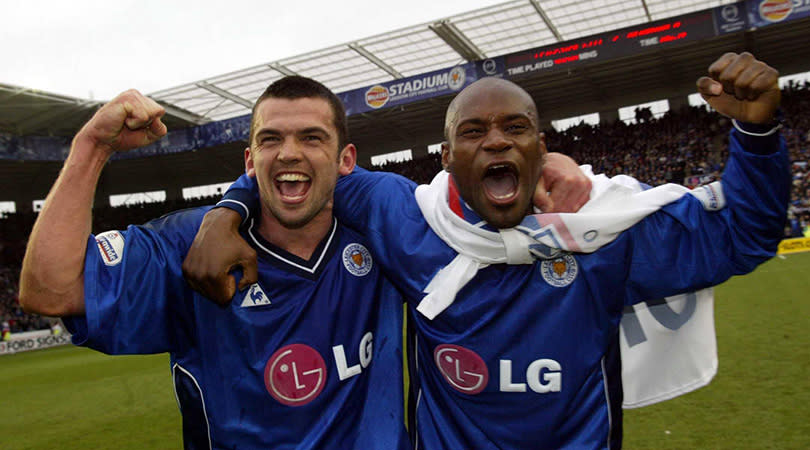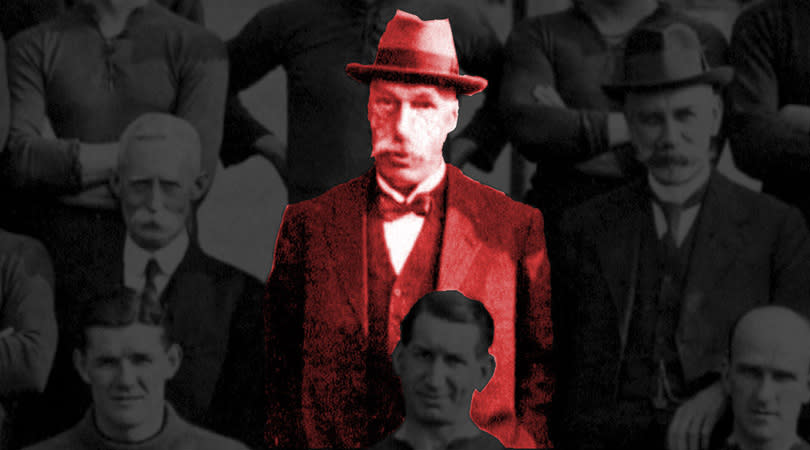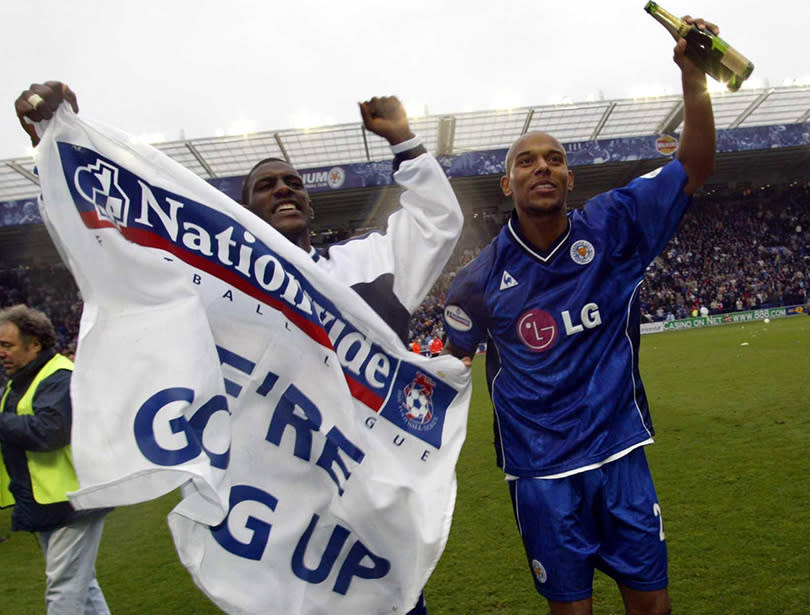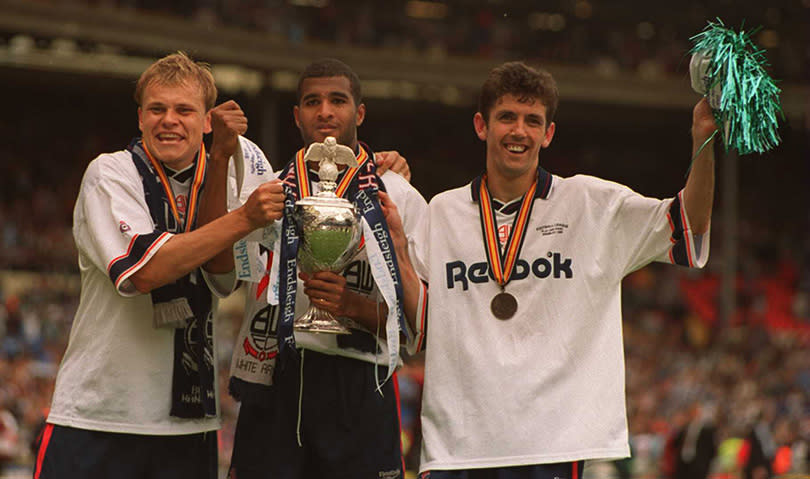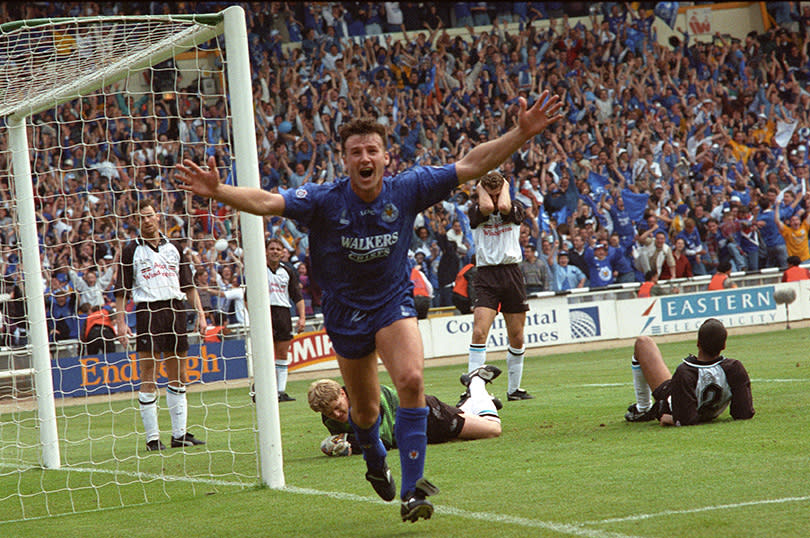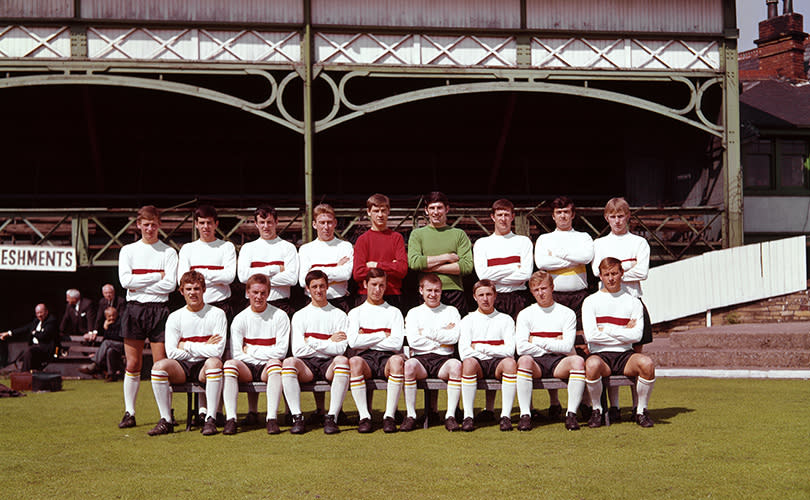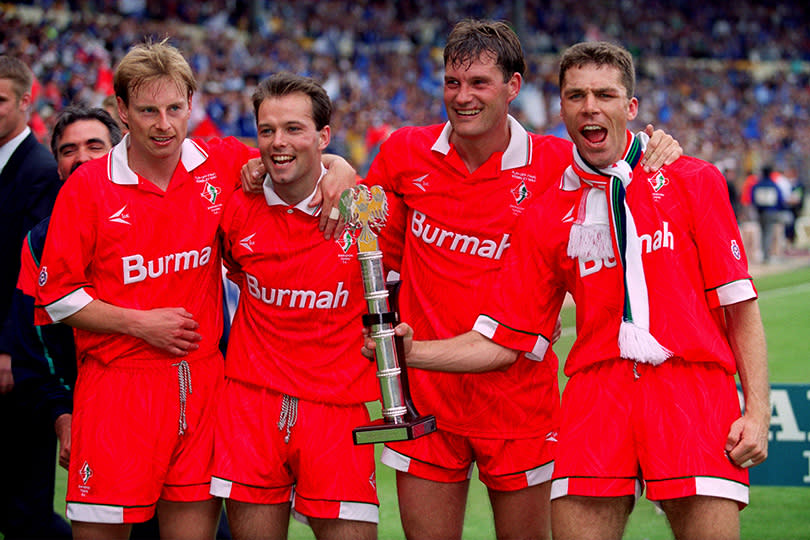The 8 most undeserved promotions in football history
When a tenacious team outside the top flight plays stylish football all season and finishes the campaign head and shoulders above the rest, it’s difficult to claim their promotion was undeserved.
Football isn’t always fair, though…
8. Leicester, 1994
Leicester fans must have felt a sickly sense of déjà vu during their 1994 First Division play-off final against Derby when Tommy Johnson fired the Rams in front. The Foxes had fallen at this same hurdle two seasons running, losing to Blackburn in ’92 and Swindon the following year. In fact, Wembley was a hideous ground for them in general, having lost there on each of their six previous visits.
Leicester probably should have lost this one too.
Brian Little’s side eventually turned the game around and ended their Wembley hoodoo, however, thanks to a double from Steve Walsh – but not without courting controversy along the way. The Leicester equaliser four minutes from the interval should have been ruled out for a Iwan Roberts foul on Derby goalkeeper Martin Taylor, and Simon Grayson – who was involved in the winning goal – was lucky to avoid a straight red card on the hour mark.
Cruel twists of fate aside, this was a park-the-bus job from Leicester, who lined up with a five-man defence and nicked a smash-and-grab winner against the run of play. “That isn't really how we want to play,” said manager Little, “but it's been working.”
7. Swindon, 1993
Perhaps Leicester deserved a spot of luck in 1994 after what happened to them in their play-off final against Swindon one year previously. This seven-goal Wembley showdown between Foxes and Robins is often cited as the greatest promotion contest of all time – and it’s easy to see why.
After a quiet first half, Swindon headed into the break with a slender 1-0 lead thanks to a goal from player-manager Glenn Hoddle. But the Robins started the second period with a bang. Less than 10 minutes after the restart, the Wiltshire side were 3-0 to the good and coasting towards the top flight – only for Leicester to stage one of the comebacks of the season.
Well, almost. Julian Joachim’s 57th-minute effort put wind in the Foxes’ sails, and quickfire strikes from Steves Walsh and Thompson drew them level with 20 minutes left to play. A thrilling tie hung in the balance, but sadly it was a contentious penalty that decided it six minutes from time.
After their almighty fightback, Leicester’s top-flight ambitions were derailed when goalkeeper Kevin Poole was harshly adjudged to have fouled Steve White in the area. Paul Bodin stepped up and buried the spot-kick that fired the Robins to a new nesting ground: the Premier League.
6. Rochdale AND Bradford, 1969
Successful promotion campaigns usually involve attractive football, lengthy winning sprees and consistently outclassing the opposition, but that wasn’t the case where Rochdale and Bradford were concerned during the 1968/69 season.
Both sides were playing their football in the old Division Four back then and, incredibly, won automatic promotion with more draws on the board than wins. They ended the campaign with an identical record of 18 wins, 20 stalemates and eight defeats.
These were the days of two points for a win, when defensive solidity was better rewarded – as was the case with Rochdale in particular, who shipped a league-low 35 goals and came out with a league-high goal average of 1.943.
Almost 50 years later, in 2013, Scunthorpe became the first team to win promotion with more draws than wins during the three-point era when they finished second in League Two (W20, D21, L5).
5. Ruthin Town, 2016
It must really sting when a table-topping season ends not in promotion but a red-tape barrier blocking your path to the division above. That’s what happened to Welsh outfit FC Nomads during the 2015/16 campaign, when they won the Welsh National League Premier only to be told that their ground was unsuitable for the nation’s second tier.
This meant that Ruthin Town, who finished as runners-up behind the Flintshire outfit by three points (and 25 fewer goals scored), were promoted to the Huws Gray Alliance in their place.

Gutting.
4. Bolton, 1995
Reading fans should still feel aggrieved that their side was denied entry into the Premier League despite finishing second in the old First Division in 1995. A runners-up spot would have sufficed any other season, but the Royals were forced to contest three play-off fixtures thanks to the Premier League’s downsizing from 22 teams to 20 the following season.
To make matters worse, Jimmy Quinn and Mick Gooding’s side should have put their play-off final against Bolton to bed just after the half-hour mark. Goals from Lee Nogan and Adie Williams had Reading 2-0 up by this point, and they had the chance to make it 3-0 from the penalty spot after Michael Gilkes was hacked down in the box.
Stuart Lovell’s miss from the spot proved decisive, however. The Trotters pulled one back through Owen Coyle in the 76th minute, before forcing extra time via Fabian de Freitas’ goal four minutes from time.
A play-off final the Royals were unfortunate to be taking part in ended up finishing 4-3 to Bruce Rioch’s Bolton after extra time.
3. Douglas Warriors, 2009
Zimbabwean football doesn’t get a great deal of press, but second-tier champions Simba Stars made a few international headlines in 2009 – for all the wrong reasons, after they were caught up in match-fixing controversy.
The Shamva outfit won the Northern Region Division One that season (on goal difference) and were preparing for life in the country’s top flight when the scandal hit.
But the Stars were docked 20 points and had their Premiership status revoked after it was discovered that they’d bribed Kadoma United ahead of their last game. An appeal was knocked back after it was deemed that key witnesses were hilariously unreliable and, as a result, second-placed (but unbeaten) Douglas Warriors were promoted in their place.
That’s Douglas, who were themselves investigated over match-fixing allegations the following season. Hmm.
2. Leicester, 2003
As the 2002/03 campaign kicked off, Leicester were mired by financial turmoil off the pitch and still licking their wounds from top-flight relegation. They were a stricken club – so much so that new signings Billy McKinlay and Nicky Summerbee were playing for free – yet booked an immediate Premier League return with an impressive points haul of 92.
But points and results don’t tell the whole story. The Foxes went into administration in October 2002 with debts of £30m, which would have been more problematic for them in later seasons. Rival managers, led by then Sheffield United boss Neil Warnock, complained to the Football League and measures were later introduced (from 2004/05) that docked clubs in administration 10 points.
“I find it quite immoral that they’ve been allowed to do what they’ve done off the field,” the Blades boss wrote in programme notes. “Otherwise, everyone who has huge debts will do exactly the same and it leaves clubs like ourselves – who run a tight financial ship – at a huge disadvantage.”
He had a point. In fairness, Leicester would still have finished above Warnock’s third-placed Blades in the automatic promotion places had they been docked 10 points that year, but the Foxes’ administration took the shine off their accomplishments.
The company that built their new stadium in 2002 was forced to write off a final payment of £5.5m, and the East Midlands Ambulance Service was left with a shortfall of around £16,000. The relative success of the Micky Adams era came with a darker undercurrent.
1. Arsenal, 1919
A hundred years ago, Arsenal were a lowly second-tier club. Just imagine what ArsenalFanTelegrams were like back then.
The year was 1919, the dust from the First World War was still settling and the English top flight was exploring proposals to expand the division from 20 teams to 22. The plan was for two clubs from the league below to be promoted as usual, while two relegated sides would be re-elected to the First Division.
But that isn’t what happened. Nope: Arsenal’s dastardly owner Henry Norris got to work charming then Liverpool chairman John McKenna – who also served as the league’s AGM, despite having been actively involved in a 1915 match-fixing scandal – and every other FA committee member.
Norris argued that Arsenal’s considerable support (helpfully in their favour, gate receipts were halved between clubs back then) and “long service to league football” should fall in their favour – though financial sweeteners were later reported too.
Needless to say, his powers of persuasion worked: the Gunners had finished fifth in the second tier, but replaced the 20th-placed team in the First Division anyway – Tottenham Hotspur. Ah.
While you're here, why not take advantage of our brilliant new subscribers' offer? Get 5 copies of the world's greatest football magazine for just £5 – the game's greatest stories and finest journalism direct to your door for less than the cost of a London pint. Cheers!
NOW TRY...
One's Kompany: just where have all the player-managers gone?
Quiz! Can you name the title winners of these five European leagues since 1990?

 Yahoo Sport
Yahoo Sport 






































